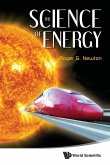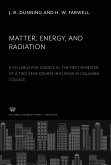The universe is full of matter and the attractive force of gravity pulls all matter together. The expansion of the universe has not been slowing due to gravity, as everyone thought, it has been accelerating. Maybe it was a result of a long-discarded version of Einstein's theory of gravity, one that contained what was called a "cosmological constant." Maybe there was some strange kind of energy-fluid that filled space. Maybe there is something wrong with Einstein's theory of gravity and a new theory could include some kind of field that creates this cosmic acceleration. It turns out that roughly 68percent of the universe is dark energy. Dark matter makes up about 27percent. The rest - everything on Earth, everything ever observed with all of our instruments, all normal matter - adds up to less than 5percent of the universe. Come to think of it, maybe it shouldn't be called "normal" matter at all, since it is such a small fraction of the universe. Balungi Francis explains this major conundrum in modern science and looks at how scientists are beginning to find solutions to it.
Bitte wählen Sie Ihr Anliegen aus.
Rechnungen
Retourenschein anfordern
Bestellstatus
Storno









